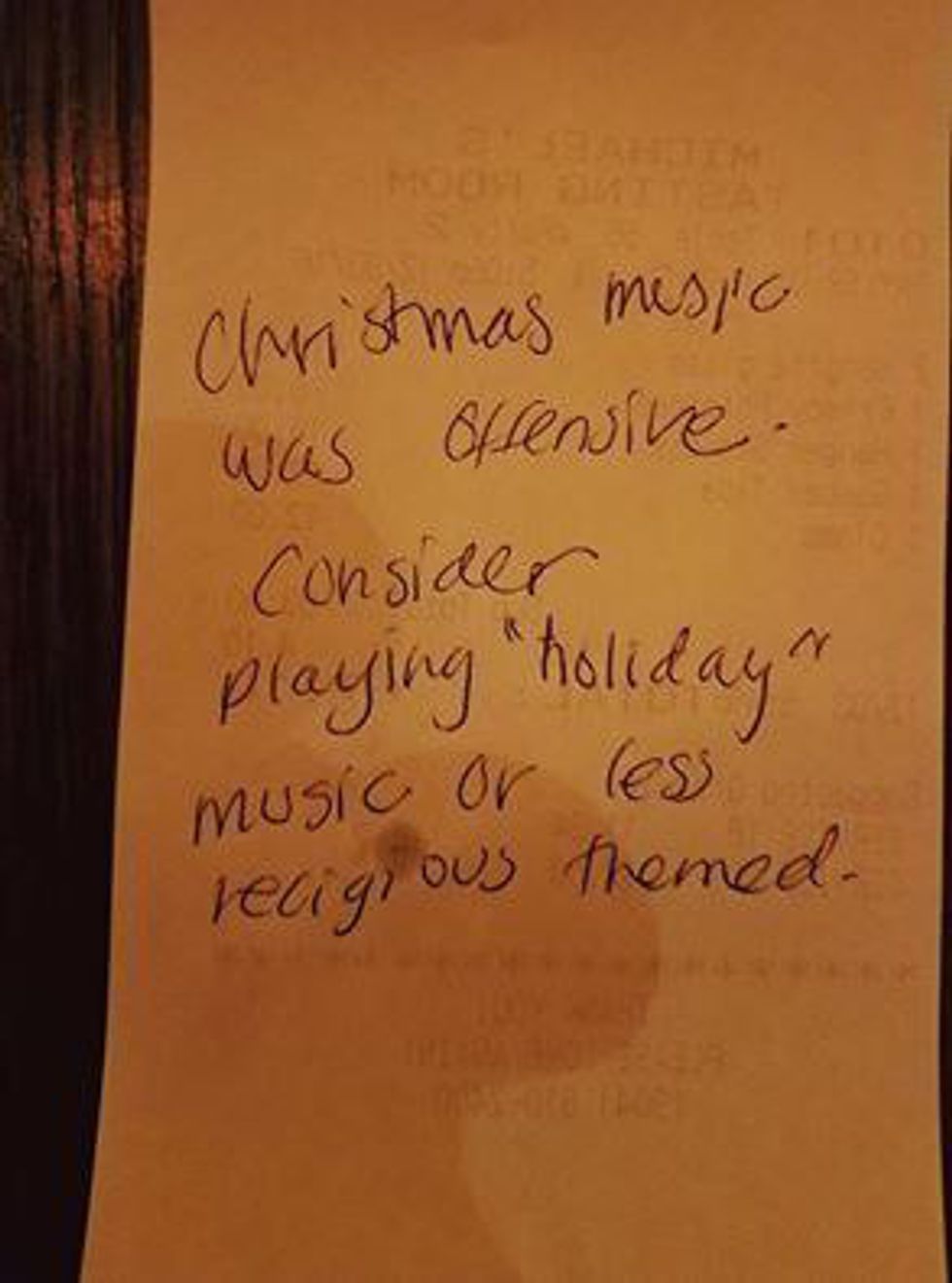On December 3rd Michael Lugo, the owner of Michael’s Tasting Room in St. Augustine, posted a picture of a note that a customer had written on the back of a receipt to his Facebook page. The note read, “Christmas music was offensive. Consider playing “holiday” music or less religious themed.”
In the time since Lugo has posted the note, over a thousand people have reacted to the post and shared their opinions by commenting. The general consensus of those that chimed in on Facebook was that the diner who left the note was in the wrong and should either “stay home” or “eat somewhere else.” However, the public’s reaction to this event does bring attention to the way in which Christmas has developed from a religious day into a universally celebrated holiday.
The writer of the note’s chief complaint was that the music playing was too “religious” so it can be assumed that their complaint referred to any and all mentions of Jesus or Christianity. This would include “Joy to the World,” “Silent Night,” and “O Holy Night.” However, the most played Christmas songs on Spotify are not religiously themed at all. Lugo’s unhappy customer would probably have been content to listen to Spotify’s playlist which includes “All I Want for Christmas is You,” “Last Christmas,” and “White Christmas.” While each of these songs specifically references Christmas in the title and is therefore not generic “holiday” music, they make no mention of the Christian themes of the holiday. Each of these songs are even played in most businesses around the country – including corporations. But how is a song about a religious holiday more acceptable than a song about a holy figure of the same religion?
While it can be understood that a non-Christian person may feel uncomfortable or excluded when Christmas music is playing non-stop, there are very few holiday songs that make no mention of Christmas or any related holiday traditions. Despite the lack of non-religious songs, these Christmas songs are played in and overwhelming amount of public places. So why does everyone allow Christmas music to be forced upon them when forcing prayer in a public school system is unacceptable?
The answer is because Christmas has evolved beyond the Christian tradition. It is celebrated by people of all different beliefs from all sorts of backgrounds. One commenter on Lugo’s Facebook post claims that “Christmas is an American tradition.” Though that is not necessarily true due to the fact that the holiday is celebrated internationally, the comment does represent that the holiday and its religious connotations may exist separately.
Christmastime now represents a season of togetherness and appreciation. It is a time to go home and see your family and spoil your loved ones with gifts. While some, more devout Christians may moan that they need to put “Christ back in Christmas,” the holiday has been developed to accommodate anyone who wants to celebrate it! While Christmas may have begun as a Christmas holiday, its universal appeal has allowed it to become so much more.



















